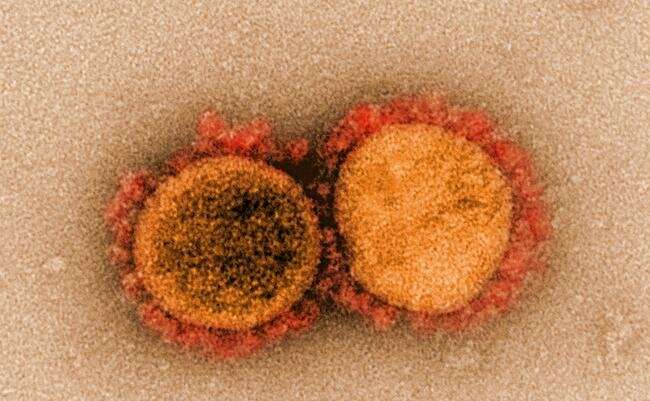
The United States and other countries called Tuesday for a more in-depth investigation into the COVID-19 pandemic’s origins, after an international mission to China earlier this year proved inconclusive.
Addressing the World Health Organization’s main annual meeting of member states, representatives from several countries stressed the continued need to solve the mystery of how COVID-19 first began spreading among humans.
“We underscore the importance of a robust comprehensive and expert-led inquiry into the origins of COVID-19,” US representative Jeremy Konyndyk told the World Health Assembly (WHA).
The European Union, Australia and Japan were among others to call for more progress on the investigation, while the British representative urged for any probe to be “timely, expert-driven and grounded in robust science”.
Determining how the virus that causes COVID-19 began spreading is seen as vital to preventing future pandemics.
But a long-delayed report by the team of international experts sent to Wuhan and their Chinese counterparts drew no firm conclusions on the origins of the pandemic.
Instead, they ranked a number of hypotheses according to how likely they believed they were.
The report said the virus jumping from bats to humans via an intermediate animal was the most probable scenario, while it said a theory involving the virus leaking from a laboratory was “extremely unlikely”.
After the report was released, however, WHO chief Tedros Adhanom Ghebreyesus insisted all theories remained on the table.
‘Science-based’
The investigation and report have also faced criticism for lacking transparency and access, and for not evaluating the lab-leak theory more deeply.
China has always flatly rejected that theory, which was a US favorite under former president Donald Trump.
While not suggesting that a lab leak was necessarily the source, a number of prominent international scientists have said a deeper, more scientific look at the theory was needed.
There have been complaints that the very terms of the investigation, negotiated with Beijing and approved at last year’s WHA, said the task was to identify the “zoonotic”—or animal—source of the virus.
There had been calls for the ongoing WHA to decide the next stages in the probe, and to redefine its focus.
US Secretary of Health Xavier Becerra backed the call for new terms of reference.
“Phase two of the COVID origins study must be launched with terms of reference that are transparent, science-based, and give international experts the independence to fully assess the source of the virus and the early days of the outbreak,” he told the assembly.
But amid diplomatic sensitivities, their agenda contains no resolutions on the way forward.
“The purpose of the inquiry is not to assign blame, but to be grounded in science, to find the origin of the virus and the outbreaks, and to help us all prevent future global catastrophes from happening,” Konyndyk insisted.
Mulling pandemic treaty
The WHA, set to run until June 1, is meanwhile mulling other steps to rein in the pandemic, which has killed more than 3.4 million people, and dramatic reforms needed to help avert future COVID-like crises.
On Tuesday, three separate independent panels that have investigated different aspects of the global pandemic response, presented their findings to the member states.
Among the recommendations was boosting WHO’s independence, and handing it the power to travel to investigate serious health threats and sound the alarm about risks without waiting for the green light from the countries concerned.
Backers argue that with such powers, the WHO would not have taken more than a year to send international experts to investigate COVID’s origins.
Source: Read Full Article